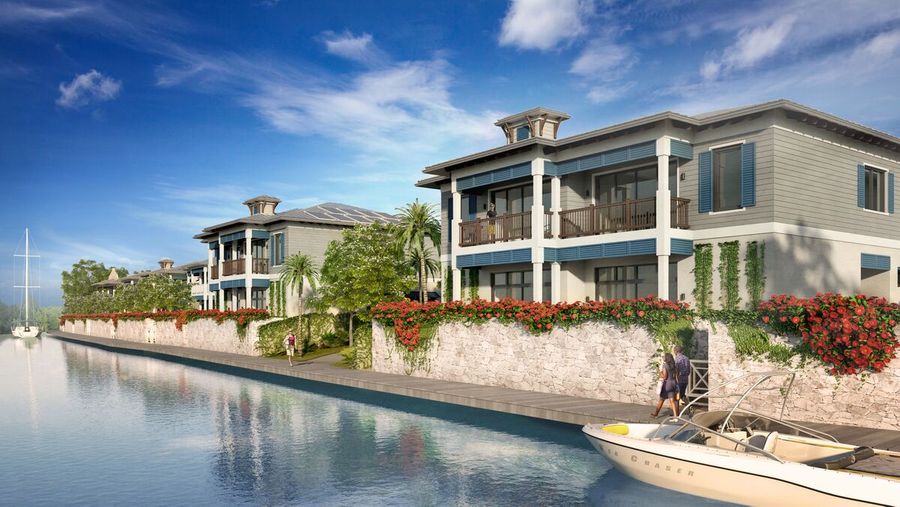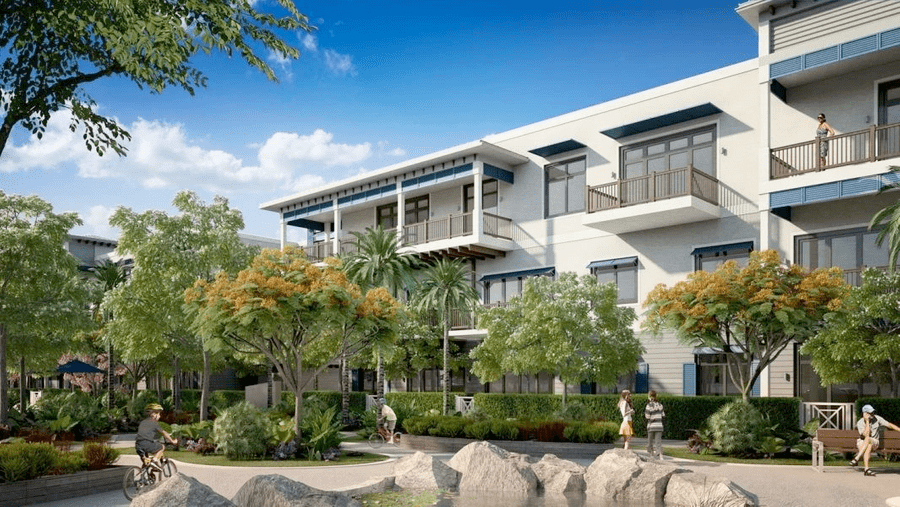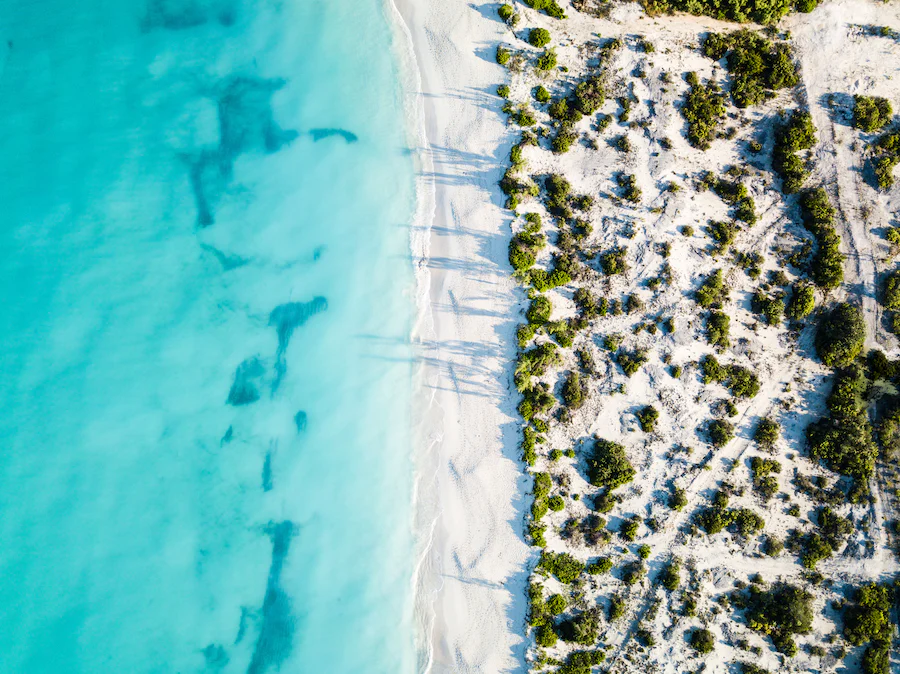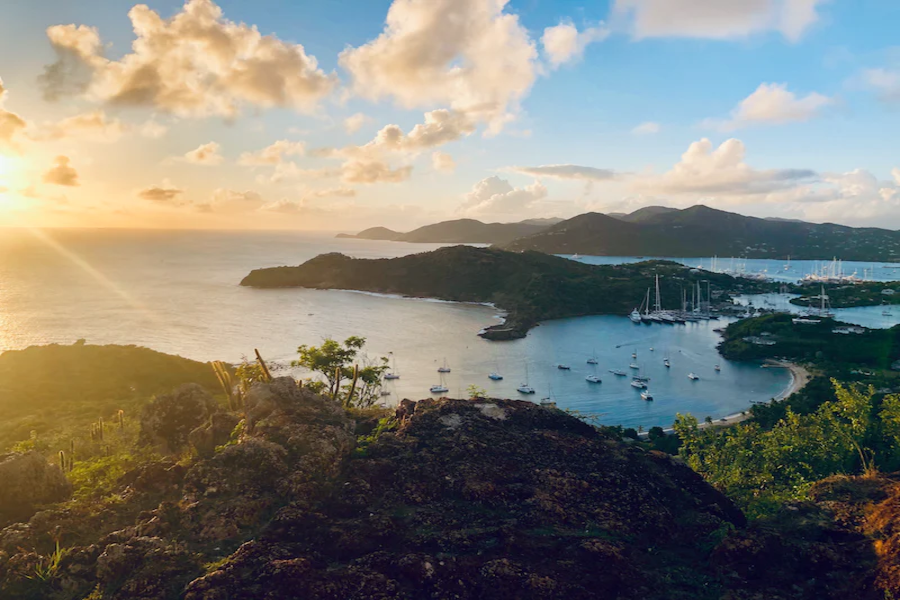Mortgages on Canadian investment properties are becoming difficult to carry using rental income alone, prompting some real estate investors to look at international property markets. One jurisdiction that has been attracting attention from Canadian buyers is the Cayman Islands.
Located 475 miles southwest of Miami, this British Overseas Territory recorded a record-breaking year for real estate sales in 2020, with the brisk pace continuing in 2021. International buyer-driven property transactions have contributed to the strongly performing market.
Sue Nickason, vice president of real estate marketing and sales at Provenance Properties – the official Christie’s International Real Estate affiliate in the Islands – says that one reason why international buyers invest in Cayman Islands real estate is because there is no restriction on foreign ownership of property. Moreover, there is the benefit of the Torrens system of land registration; the Cayman Islands Government will pay compensation to any person who suffers a loss due to an error in the Land Register, which cannot be rectified. On this basis, obtaining title insurance is generally considered unnecessary.
“Canadians can buy any type of property in the Cayman Islands – vacant land, beachfront condos, a private residence or commercial property – generally without restrictions. This is an attractive option compared to other sun destinations. In Bermuda, for instance, non-residents cannot acquire vacant land. In Mexico, foreigners cannot buy land located within 100 kilometres of any national border and within 50 kilometres of any ocean.”
Nickason explains there is also no alien landholding license requirements in the Cayman Islands. “Foreign buyers are often not aware of the additional administration requirements and costs associated with buying properties abroad. As an example, land-holding licenses must be applied for in Anguilla, St. Vincent, St Kitts and other Caribbean countries. In contrast, acquiring property in Cayman is generally as timely and straightforward a process as one would expect in Canada, thanks to world-class property lawyers, a highly efficient land registry system and experienced realtors all available here.”
Another reason why Canadian investors are buying property in the Cayman Islands is due to the availability of financing from local banks. “The markets are certainly buoyed by low interest rates and buyers are taking advantage of these rates and availability of financing. Banks familiar to Canadians – CIBC FirstCaribbean, RBC and Scotiabank – have offices on Grand Cayman and offer financing to qualified applicants, generally up to 65% of the purchase price. Other banks offering financing include Butterfield and Cayman National. There are also private banks here that offer financing instruments.”
In addition to ease of ownership and availability of financing, Cayman’s tax-efficient status appeals to international clients. “There are no recurring property, corporate, inheritance or capital gains taxes in the Cayman Islands,” notes Nickason. “This is an important consideration for some of our international clients. We do, however, remind them that we are not tax free in Cayman – there is a 7.5% stamp tax (land transfer fee) on property transactions and stamp tax is applied to financial transactions and insurance. We also have a 22% import duty on most items.”
The purchase cost and potential return on investment is an important exercise for any investment-motivated buyer to undertake and Nickason advises that potential buyers also pay serious attention to considerations which may not appear on the balance sheet, namely the value proposition of the jurisdiction.
“Cayman may not be the most affordable place in the world to buy property, but it should earn a spot at the top of the list when it comes to the value it extends. The list of reasons is lengthy, but here are often-cited reasons why Cayman attracts discerning property buyers who look to long-term property appreciation opportunities:
- Stable government – a long history of a democratically elected government with the additional oversight from the United Kingdom for matters related to financial stability, international defense and local security, due to status as a British Overseas Territory
- Low crime rate – one of the lowest in the world
- Excellent healthcare – four hospitals serving a population of approximately 70,000 residents, and 4.5 doctors/1,000 residents
- Ease of access – a modern airport served by major airlines from urban hubs across North America and an FBO for private charter service
- Excellent infrastructure – reliable utility systems and fastest internet service in the Caribbean, generally on par with what is offered in other developed countries
- Quality real estate – building code based on the Miami-Dade standards and a progressive Central Planning Authority
- Beautiful nature environment – a tropical year-round climate permits an abundance of marine- and land-based recreational pursuits, and this in turn enhances quality of life and motivations to live in the Islands on a part- or full-time basis
“Properties generally have the potential to hold their value in places that are well regulated, have good governance, a diversified economy, low government debt and high standards of living,” said Nickason. “Investors typically seek out jurisdictions with these attributes and Cayman offers them all. Waterfront properties typically hold their value in the long run as well and, to that end, we have an excellent offering here.”
A great example of a waterfront property is The Residences at Seafire, a luxury condominium development located on Seven Mile Beach adjacent to the AAA Five Diamond award-winning Kimpton Seafire Resort + Spa. The Residences are designed with soothing textures that blend seamlessly with the expansive waterfront views. Six of the 62 residences remain for sale, with prices starting from approximately US$2 million. The property has been popular with full-time residents, vacation homeowners and investment-motivated buyers who placed their residence in the optional resort-managed rental programme.
Another popular project is OLEA, a waterfront community located in the 685-acre Camana Bay. This town is designed on the principles of New Urbanism and features retail stores, eateries, a cinema, marina and private international school, as well as almost 800,000 square feet of Class A commercial office space. OLEA offers condos, townhomes and semi-detached duplexes for sale, with prices starting in the low $700s. Within a 10-minute walk of Seven Mile Beach and the amenities of Camana Bay, this residential development boasts Grand Cayman’s first lazy river, a gym, yoga centre, herb garden, boardwalk with boat slips and expansive green spaces.
For those seeking to live in the Cayman Islands, full-time investors can apply for permanent residency by investing US$1.2 million in developed residential or commercial real estate (excluding vacant land and preconstruction properties). Approved applicants are then permitted to reside in Cayman for 25 years and retire or work remotely, a term period which can be renewed for an additional 25-year period.
For those seeking to acquire permanent residency, the Certificate of Persons of Independent Means is a better option. It permits qualified applicants to apply for a variation to have the right to work in the local economy and to eventually receive a UK passport. This programme requires a minimum investment of US$2.4 million in Cayman real estate.
“A select number of applicants are approved for these programmes each year,” says Nickason. “We assist clients with finding properties that meet programme criteria and introduce qualified lawyers to assist with the application process. It’s important to receive proper advice prior to acquiring a property for these programmes.”
A try-before-you-buy option is now available to those who are considering a full-time move but are not quite ready to put a for-sale sign on their Canadian residence. The Cayman Islands introduced a Global Citizen concierge programme in October 2020. Qualified applicants can live and work remotely in Cayman for up to two years, without investing in real estate. Over 150 people have already taken advantage of the opportunity, with a number of them now actively considering a full-time move.
Nickason also has some advice to share for those not planning to move to Cayman full time. “Some buyers purchase condos and, for the first couple of years, use them as investment properties. Then they eventually become snowbirds and retire here,” she said. “Many properties with strata prohibit short-term rentals so it’s important that if you’re looking at a condo to understand rental options before you buy and engage a professional rental program management company. Otherwise, you’re offshore and trying to manage maintenance, housekeeping, marketing, paying local fees and more remotely.”
The borders in Cayman currently remain closed but are expected to re-open late 2021. Nickason and her team can still assist international buyers across the miles and to learn more about acquiring property in the Cayman Islands, contact sue.nickason@









